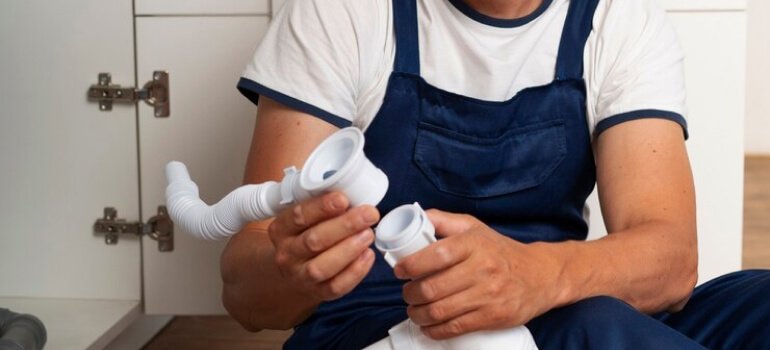- Nestguard Home Care
- Plumbing Inspections
Plumbing Inspections

Plumbing Inspections
Plumbing inspections are an essential service for maintaining the health and longevity of your plumbing system. At NestGuard Home Care, our licensed professionals offer comprehensive plumbing inspections to ensure that your pipes, fixtures, and appliances are operating efficiently and safely. Whether you are buying a new home, preparing for seasonal changes, or simply want to ensure everything is in working order,
our team conducts thorough inspections that include checking for leaks, corrosion, blockages, and potential future issues. We use advanced tools and technology to inspect your plumbing system from top to bottom, identifying any problems before they turn into costly repairs. Our goal is to give you peace of mind and help avoid unexpected plumbing emergencies, ensuring your system runs smoothly for years to come.
What Are The Benifits
Plumbing inspections offer a wide range of benefits that help homeowners avoid costly repairs and maintain the efficiency of their plumbing system. One of the key advantages is early problem detection—regular inspections allow for the identification of leaks, clogs, or damaged pipes before they escalate into major issues. This proactive approach prevents major repairs, saving you money in the long run. Plumbing inspections also ensure that your system is operating at peak efficiency, reducing water waste and lowering utility bills.
- Early Problem Detection
- Prevents Major Repairs
- Safety Assurance
- Longer Lifespan of Plumbing System


Additionally, a well-maintained plumbing system increases the value of your property, which is especially beneficial if you plan to sell. With an inspection, you gain peace of mind, knowing your system is in good working order and reducing the risk of unexpected breakdowns. Inspections can also uncover potential safety hazards, such as gas leaks or mold, ensuring the safety of your family. Lastly, regular inspections help extend the lifespan of your plumbing system, protecting your investment and minimizing the need for major replacements.
Any questions? We're here to help
How do I prevent frozen pipes in the winter?
To prevent frozen pipes in winter, insulate exposed pipes and keep your home’s temperature consistently above 55°F, even when you’re away. Let faucets drip slightly during extreme cold and open cabinet doors to allow warm air to reach indoor plumbing. Seal any cracks or gaps where cold air can enter to keep your pipes protected.
What Should I Do If I Have A Leaky Faucet?
If you have a leaky faucet, start by turning off the water supply to prevent further dripping and water waste. Then, check if the issue is due to a worn washer, loose part, or damaged cartridge — all of which are relatively easy to replace. If you're unsure or the leak persists, it’s best to call a licensed plumber to avoid potential water damage or higher utility bills.
How Often Should I Flush My Water Heater?
You should flush your water heater at least once a year to remove sediment buildup that can reduce efficiency and shorten the lifespan of the unit. If you have hard water, consider flushing it every 6 months. Regular flushing helps maintain consistent water temperature, improves energy efficiency, and prevents corrosion or clogs.

